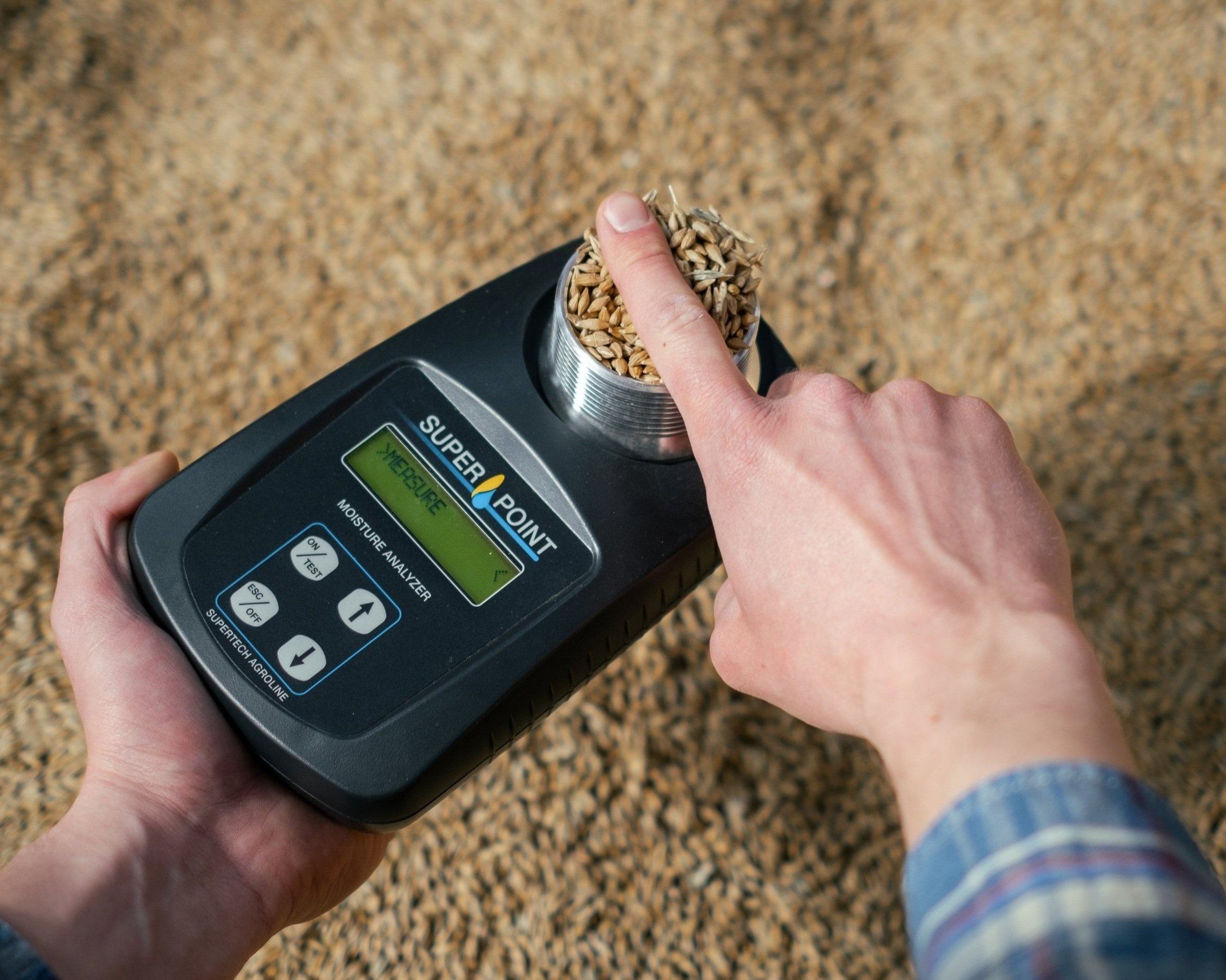Moisture Meter Buying Overview: What to Try to find in High-Quality Instruments
Moisture Meter Buying Overview: What to Try to find in High-Quality Instruments
Blog Article
The Ultimate Guide to Moisture Meters: A Comprehensive Overview and Just How They Can Save You Money
Wetness meters serve as important devices in spotting and keeping track of moisture content in materials, helping in preventing pricey problems and making sure the top quality of products. Recognizing the nuances of various kinds of wetness meters, their applications, and the prospective cost-saving advantages they offer can be a game-changer for companies and experts alike.
Kinds of Dampness Meters
One typical kind is the pin-type dampness meter, which gauges the electric resistance in between 2 pins inserted right into a product. Pinless wetness meters, on the various other hand, usage electro-magnetic sensing unit plates to scan a larger area without triggering damage to the product's surface area.

Furthermore, there are also specialty moisture meters designed for details materials like grain, dirt, or hay. These meters supply precise wetness analyses customized to the unique residential properties of the material being tested. Infrared moisture meters determine the thermal properties of a material to determine its dampness material non-invasively, making them beneficial for applications where pin or pinless meters might not be appropriate. Understanding the different types of dampness meters readily available can help markets choose one of the most suitable device for their specific moisture measurement needs.

Benefits of Using Wetness Meters
Dampness meters use very useful benefits in precisely examining and checking moisture levels in diverse materials and atmospheres. One of the primary benefits of making use of wetness meters is the avoidance of prospective damages triggered by excess moisture.
Moreover, utilizing moisture meters can cause boosted power effectiveness. By determining locations with high wetness degrees, such as leaks or bad insulation, modifications can be made to enhance energy conservation and reduce energy prices. In farming setups, wetness meters play an important function in maximizing crop returns by making it possible for farmers to keep track of dirt wetness levels and make informed watering decisions. On the whole, the advantages of utilizing dampness meters span across various industries, providing cost-effective services and advertising far better quality assurance practices.
How to Select the Right Moisture Meter
When picking a moisture meter, it's essential to ensure that the meter is suitable for the details material you will certainly be screening. Various products have differing electric residential properties that can affect wetness readings, so picking a meter created for your material is vital for precise results. By thoroughly reviewing these factors, you can select a wetness meter that meets your needs and offers precise wetness measurements for your tasks.
Correct Methods for Moisture Meter Use

Expense Cost Savings Through Moisture Meter Applications
Just how can the tactical use of wetness meters lead to significant cost financial savings across numerous markets? In the agriculture sector, dampness meters help in identifying the ideal time for harvesting plants, protecting against excess or over-drying moisture that can influence the final product's high quality.
Likewise, in building visit the site and construction, dampness meters Visit This Link help prevent expensive problems by spotting moisture levels in structure products, such as timber or concrete, which can lead to architectural concerns otherwise addressed without delay. By determining problem areas early on, contractors can take restorative measures to avoid considerable repairs or substitutes, inevitably conserving money and time.
Moreover, in the food handling sector, moisture meters are vital for keeping track of item quality and making sure conformity with safety policies. By properly gauging wetness material in food, suppliers can stop putridity, maintain freshness, and reduce waste, causing considerable price savings. On the whole, the strategic application of wetness meters is a valuable financial investment that can result in significant cost decreases and improved efficiency across numerous markets.
Conclusion
Finally, moisture meters are useful tools for identifying and determining wetness levels in different products. By making use of the ideal moisture meter and complying with appropriate techniques, individuals can successfully avoid pricey problems caused by excess wetness. Buying a quality dampness meter can result in significant cost financial savings over time by identifying prospective issues beforehand and making it possible for punctual removal. Eventually, dampness meters are crucial check tools for preserving the integrity and durability of frameworks and materials.
Dampness meters serve as important tools in detecting and keeping track of moisture content in materials, helping in preventing costly damages and guaranteeing the high quality of products. Infrared moisture meters gauge the thermal residential properties of a material to establish its moisture content non-invasively, making them helpful for applications where pin or pinless meters may not be ideal.Dampness meters provide indispensable advantages in accurately evaluating and checking moisture levels in varied products and settings. In farming settings, dampness meters play an important function in optimizing crop returns by making it possible for farmers to check dirt moisture degrees and make educated watering decisions.In final thought, moisture meters are valuable tools for identifying and gauging dampness levels in different products.
Report this page